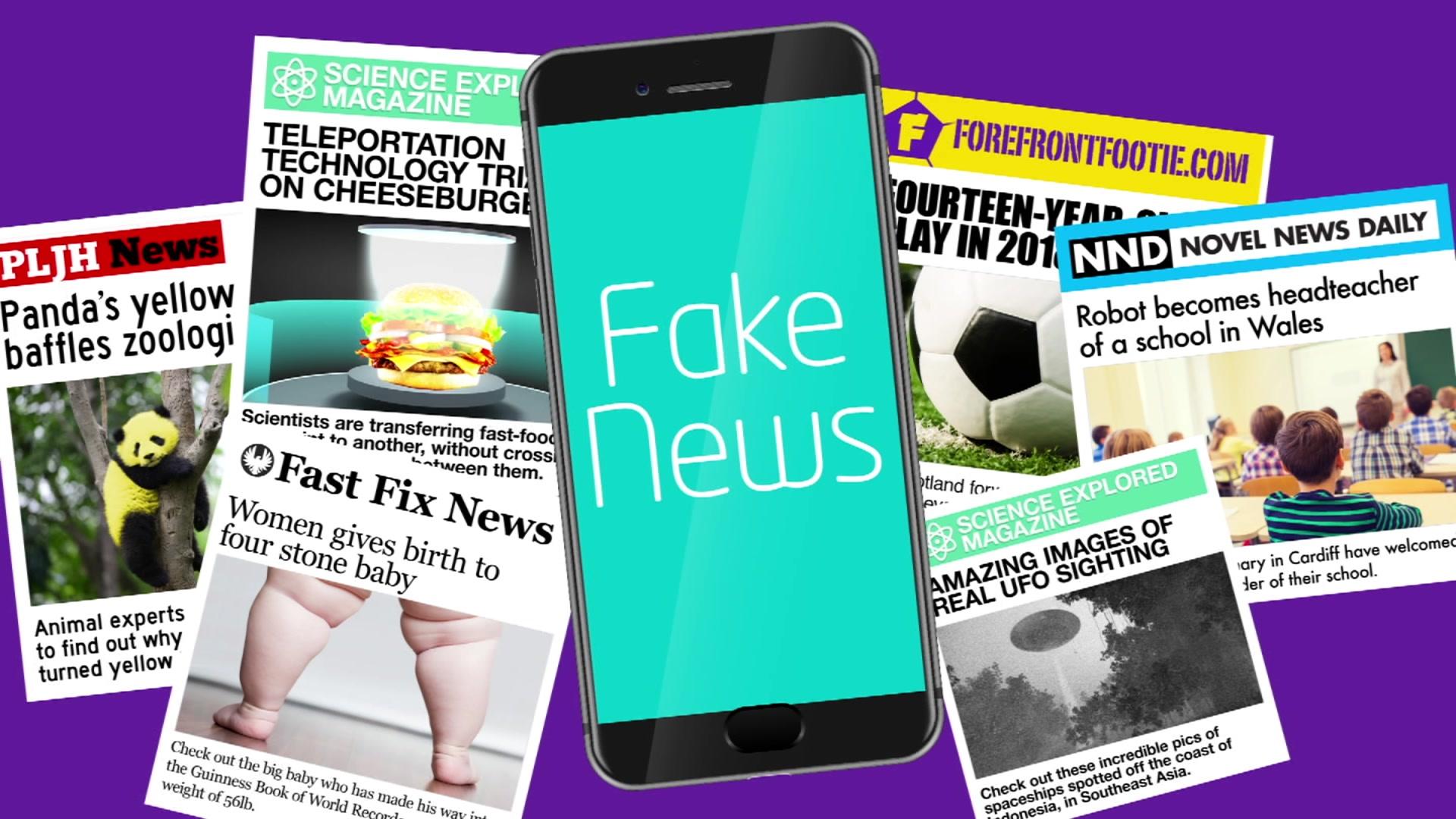Anti-racism protesters come together after week of riots
People across the UK turned out to protest against the riots of the last few days
- Published
Thousands of people took part in protests against racism in cities and towns across England on Wednesday evening.
People came together in places like London, Liverpool, Bristol and Newcastle to show their support for refugees and immigrants.
Most of these protests were peaceful. They were a response to anti-immigration riots that have taken place across England and Northern Ireland over the last week.
But there was also violence and disorder in some places, with several arrests made by the police.
Advice if you're upset by the news
- Published29 August 2022
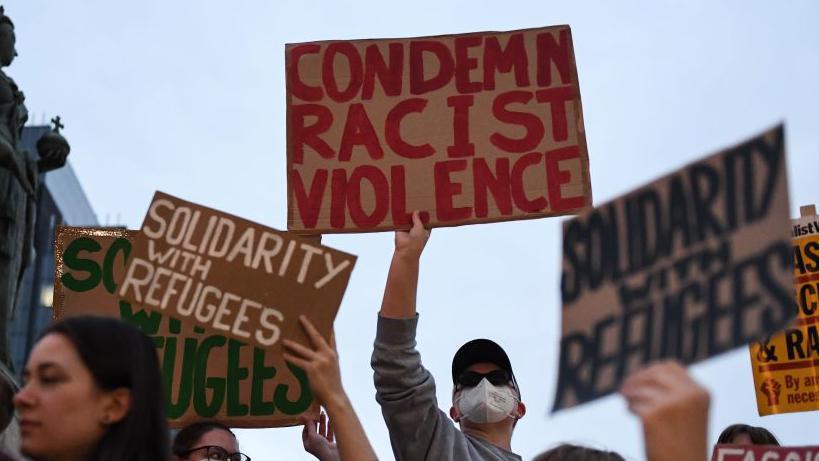
Many of Wednesday's protests were peaceful
Anti-immigrant protests were expected on Wednesday and thousands of police officers were prepared ahead of time.
But lots of people supporting immigrants and refugees came together in the places where anti-immigrant protests had been planned, outnumbering those who were protesting against immigration.
They held up signs with messages saying “refugees are welcome here” and chanted “racists go home”.
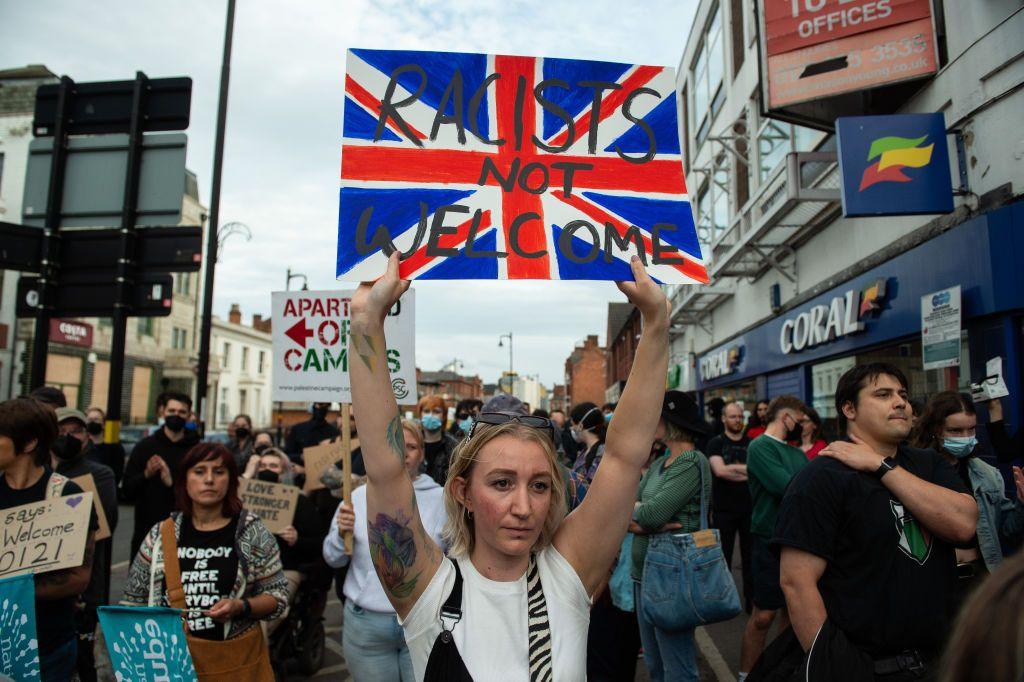
Many of the people who took part in the protests on Wednesday evening held up signs with messages speaking out against racism
Police said there was a lot less violence and damage on Wednesday night compared with previous days.
Mark Rowley, who is the chief of the Met Police, said the policing operation on Wednesday night was "successful".
“We put thousands of officers on the street and I think the show of force from the police and frankly the show of unity from communities, together defeated the challenges that we’ve seen," he said.
Why have there been riots?
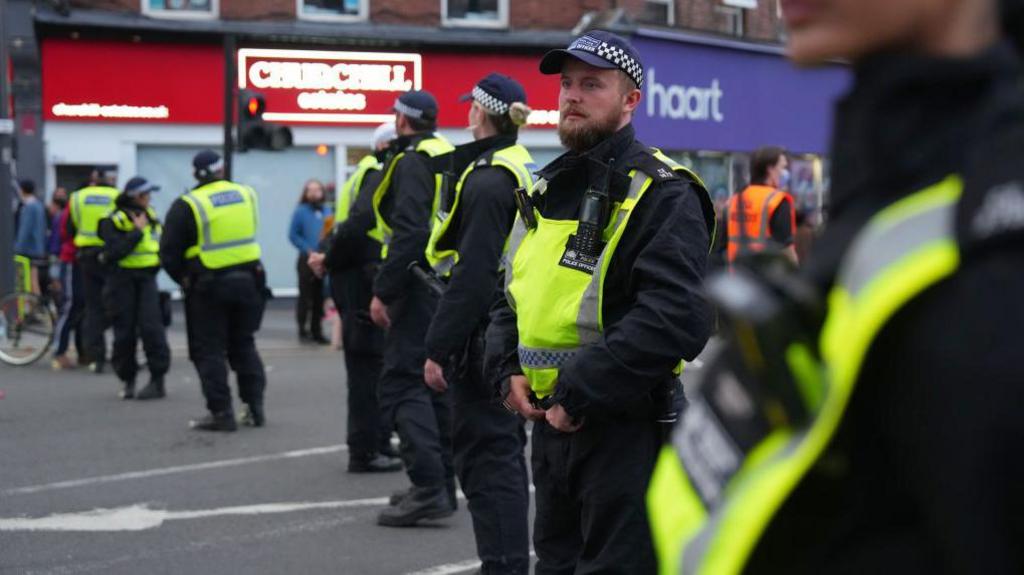
Thousands of police officers were prepared ahead of planned demonstrations this week
Several anti-immigration protests have been taking place across England and Northern Ireland over the last week following an incident in Southport.
Some of the demonstrations were organised by far-right groups who have extreme views - often linked to immigration, race and national identity.
However, not everyone who has attended protests are linked to these groups.
Some of the protesters have been encouraged by misinformation spread online, which incorrectly claimed what happened in Southport was connected to illegal immigration.
What's been said about the unrest?
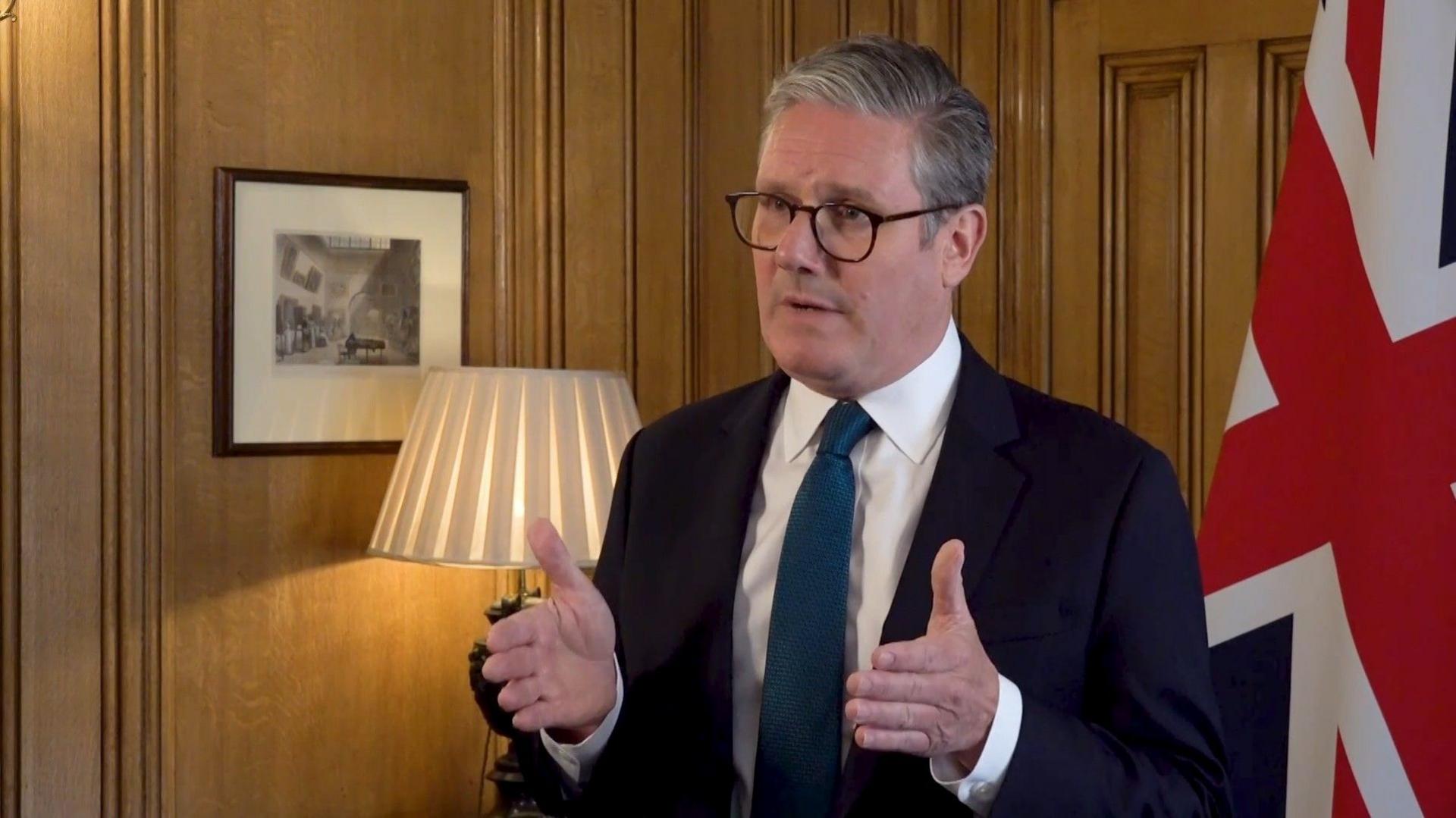
The prime minister said people taking part in the anti-immigration riots would "feel the full force of the law"
Earlier this week, prime minister Sir Keir Starmer promised to keep communities affected by the riots safe during an important meeting with government ministers and members of law enforcement.
He said people taking part in the anti-immigration riots would "feel the full force of the law".
"That should send a very powerful message to anybody involved, either directly or online, that you are likely to be dealt with within a week," he said.
Top tips: How BBC reporters spot fake news
Both the government and the Office of Communications (Ofcom), who oversee the activities of all the communication industries in the UK including the TV, radio and online sectors, have criticised the role social media platforms have played in the recent events.
The government said far more needs to be done to stop the spread of misinformation.
- Published5 April 2023
